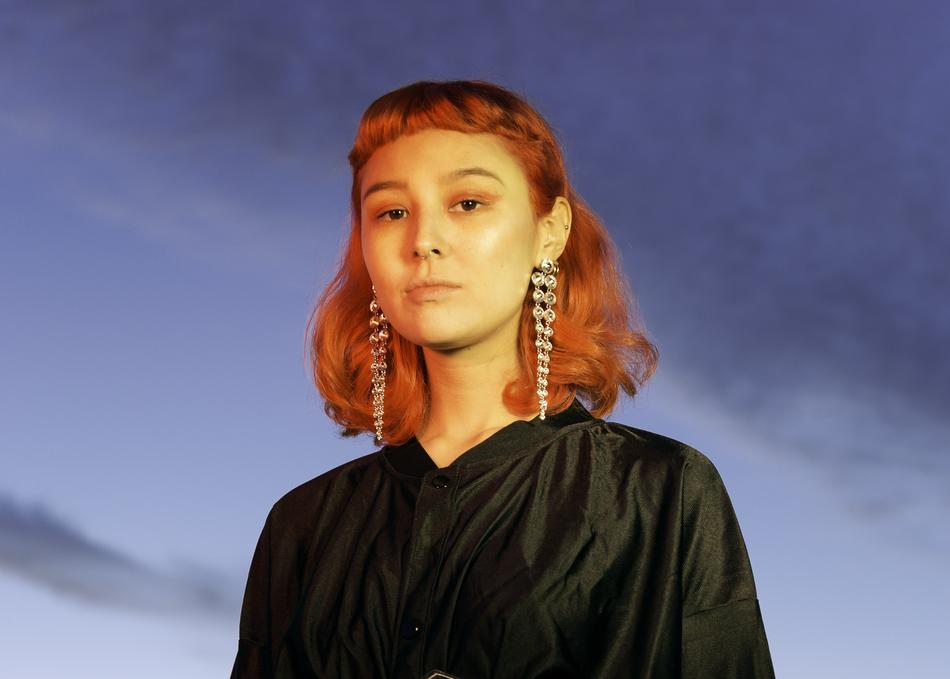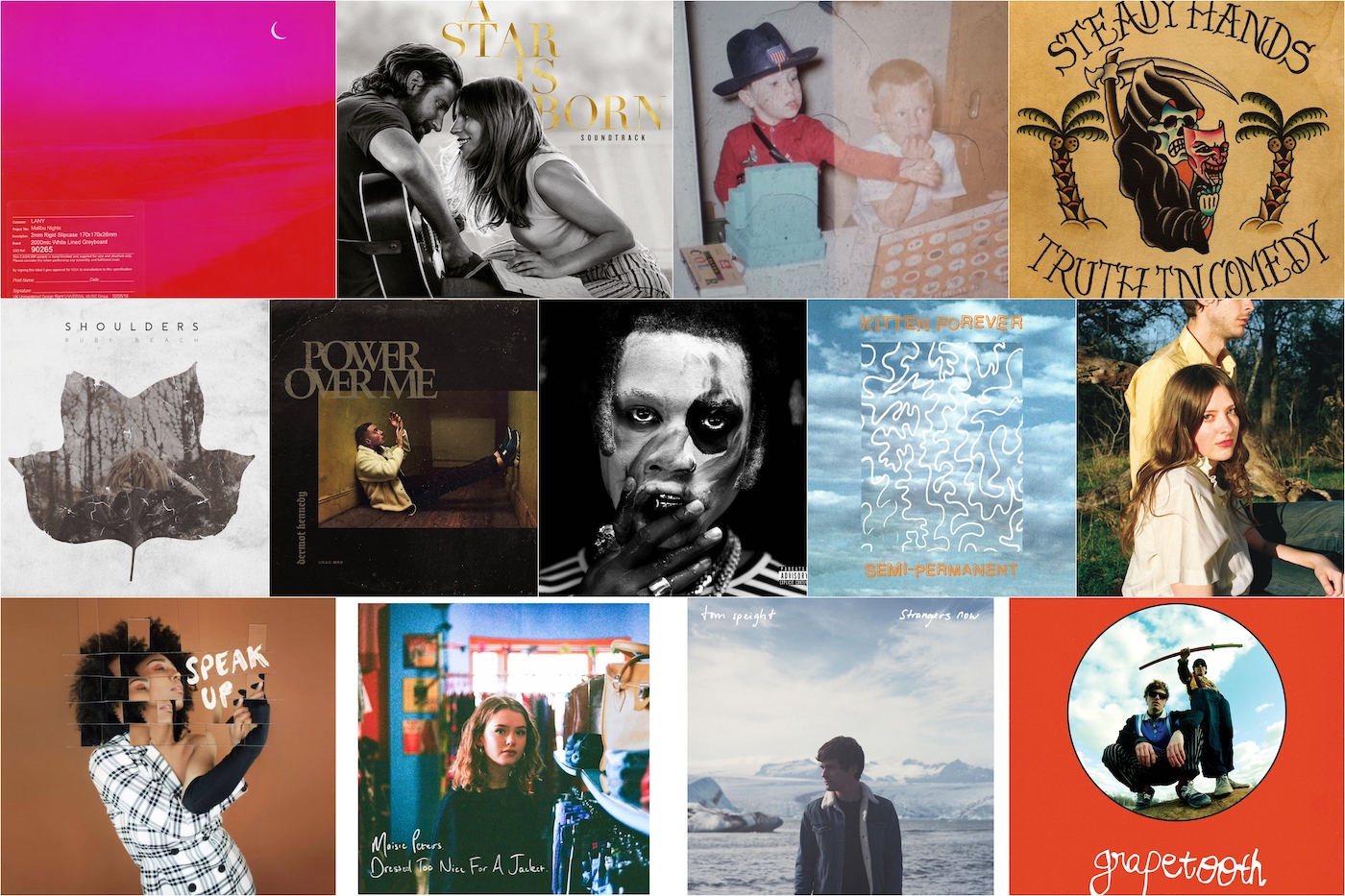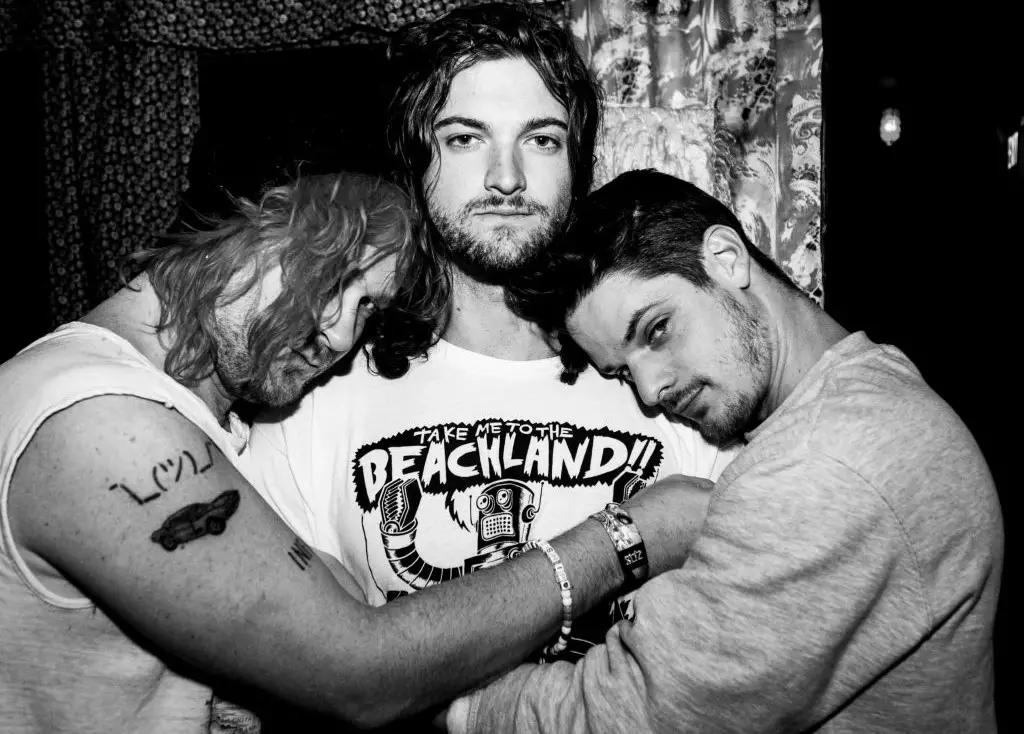EDEN’s Jonathon Ng delves into his observations of the future in hope and uncertainty, translating the romanticism of film into our everyday lives, his sophomore album ‘no future’, and the idea of autonomy and change in identity.
edited by Mitch Mosk
Stream: ‘no future’ – EDEN
Movies will emote you and put you in a certain frame of mind. With EDEN, I’m translating that into my own life.
Every generation, past and present, has its own contrived understanding of fear, of loss, of the future and the unknown. It’s taken him years of concentrated reflection, introspection, and life experience, but EDEN’s Jonathon Ng has found his own peace of mind with whatever tomorrow brings. In just shy of an hour, EDEN’s sophomore album no future delivers a spectrum of sound and experience – deconstructing humanity in social media and the climate crisis, self-reflection, and the relinquishing fear of the unknown in changing times and turbulent relationships. The layered fusion of European electronic music, modern pop, movie samples, birds chirping, synthesizers and pulsing 808s creates layers of futuristic whim in harmony with the purely personal and homemade aspects of an entirely self-made album.
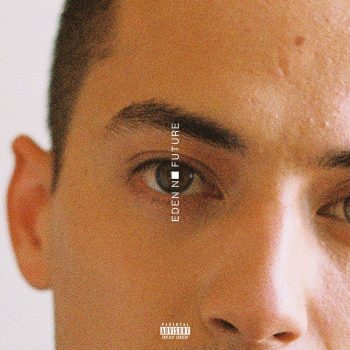
Released February 14, 2020 via MCMXCV / Astralwerks, no future is arguably the most human electro-pop album in the game. The record arrives two years after EDEN’s debut album vertigo sent shockwaves through unsuspecting ears. Upon its release, vertigo was celebrated as a cinematic ode to isolated beauty: Atwood Magazine’s Christine Costello described the record as a “study of human relationships and experience,” and Atwood Editor-in-Chief Mitch Mosk hailed it as “an intimate patchwork of a life lived… an emotional and nuanced musical journey that fully realizes the artist’s vision.”
Discussing vertigo back in early 2018, Ng himself described it as “a weird, deconstructed pop album,” and the shoe still fits as Ng progresses forward with no future.
EDEN’s sophomore record follows the artist’s continued journey through sonic and emotional exploration. “Each point is who I am and what I am in that moment,” Ng asserts. A man who once described his debut as a “selfish piece of work,” EDEN is unapologetic about his output: “I have no responsibility to make a certain type of music or get radio play; I’ve never had a radio song, I don’t try to make anything,” he says. “All I ever do is what I feel right now and it’s genuine.”
no future holds a gingerly hopeful gaze on the future, a concept full of wonder, possibility, inevitability, and dread. Tracks like “so far so good”, “$treams”, and “????” appear to be dominated by grime, only to ultimately unearth a curiosity in the unknown – despite our classically human fears. “untitled”, the first song EDEN completed for the album, basks in hope and trying despite hardship, its sentiment and softly cascading guitar sounds promising an artist full of growth. Inklings from vertigo remain in no future’s shades of pessimism and feeling lost, but on his sophomore album those themes appear on a larger scale: This time around, EDEN speaks to heartache and existence in a world doomed by panic, insatiation, superficiality, and climate change.
i couldnt wait to leave that town
it broke my heart, i had to go
i made a choice, to see this out i lost it all
you didnt show
all you wanted was some violent form of love
immolate me
all i was looking for was colours blurred
and words that I’d forget
and now I’m singing
slow down
keep those feet on the ground
i hope youll be home soon
somehow, we’ll figure out how to cope
this nothing we can’t
there is nothing we can’t do right
Flawlessly, the 19-track no future blossoms in Ng’s experimentation with sonic and instrumental exploration without straying from EDEN’s signature electronic experimental drive.
As his own lyricist and producer, the themes of construction and deconstruction are amplified throughout all aspects of his craft. The heart of EDEN’s signature sound is the pioneering, finding, and breaking down of sounds and samples – pieces of a puzzle. From the tugs of sound versus silence, chopped and scrambled choruses, to Amber Run-type one-man layered harmonies, grimey industrial sounds, to an almost reassuring children-led Jamaican folk song Linstead Market performance sample on “untitled,” an homage to European club music, modular synth sounds, strings and keyboard riffs… the stripping down and manipulation of all forms of studio-made layers, samples, performed instrumentals, and voice in all contexts act as a single, intricate, beautiful machine. no future reanimates the world around it into a newer, expansive immersion of art: An expression of complex ideas through a complex musical experience.
The epitome of this thrives in no future’s 3rd track, “fomo” (acronym for “fear of missing out”), detailing remorse and compassion for a self-destructing love; as on “untitled”, Ng is entirely self-aware – yet while one song details a light in the distance, the other marks a certain learned acceptance and defeat. EDEN sings, speaks, chops up, and reconstructs four sentences for the “fomo” chorus: “Mind if i don’t end this dying,” between the words of “I don’t follows fighting for a lost cause,” and “if it’s worth it, you would know” interjecting “feels like even drifting, we’re just off course,” over a certain yet soft electric guitar flow. EDEN has a curious way of creating in and around chaos, blending acoustic work with glitches and any number of stylistic contributions that form both the storm, and the following calm.
As producer, Ng pays homage to all aspects of himself to unify the most personal and intricate of sounds and emotions pouring out of EDEN.
His whole record flows seamlessly, with mystic track transitions and interludes such as “in”, “static”, and “out” connecting songs and catapulting no future from a collection of tracks, to a unified album.
Thematically, reconstruction lies at the core of this album, marking the transformation of Ng’s perspective on uncertainty. EDEN’s deconstruction, outside of production, lies in his analyses: His understanding and observation of self, relationships, and the world – seeing them all in the capacities of their inevitabilities. no future reconstructs those ideas while retaining that realism, becoming something of an endorsement of hope in the unknown. The idea of something “not being over” after an end or dramatic change when it comes to relationships, any aspect of self, or climate, sharpens this line between hope and optimism. This is evident in the timebomb-type song “hertz” and its repeated incomplete line, “I’m just scared that you’ll,” which speaks for itself. This second track narrates hope and effort saturating in an expiring relationship, turning into anxiety due to distance. Much later in the record, the seventeenth track “2020” also covers an unknown but with an upbeat percussive acceptance: “Forget my future and jump into the dark.”
If reconstruction and deconstruction make up the heart of the music, then samples are its lungs. Atop the instruments and synthesizers, the curated and tediously perfected sounds, listeners can expect nods to monologues from classic French cinema, computer error sounds, child choirs, words of adventurer/hiker Eric Larson on his South Pole trek, soft breathing, and even Natalie Portman, perfectly in place.
“Having someone just speak, or a sample of the rain hitting the window, or rustling of the wind can really convey a sentiment or emotion or memory one has,” Ng states. “It kind of elevates the music in a way that the music by itself just can’t. I feel like if I were to just pick up a guitar, it wouldn’t be enough. It’s a blessing being able to do that, to produce myself; the samples are just as part of the music.”
At the center of EDEN’s multi-faceted artistry is the idea of public authenticity, but more personally, the EDEN identity’s core lies in the notion of its own autonomy (or lack thereof); where does Jonathon Ng end and EDEN begin, and how much does choice play a role?
For now, EDEN and Ng are intertwined. “I think the only thing I try is to keep a quiet level head about it; just being honest and being yourself – which is a really easy thing to say and a really difficult thing to do.” Ng admits to exploring collaborations for no future, but to eventually opting to go it alone.
With no direct external interference or room for negotiating, EDEN’s current music sings of exploration, storytelling, and discovery from the purest of personal lenses. Ng strives to move people with the same romanticism and intricate tendencies of film, and he succeeds in doing that through his finely orchestrated, nuanced production and song craft.
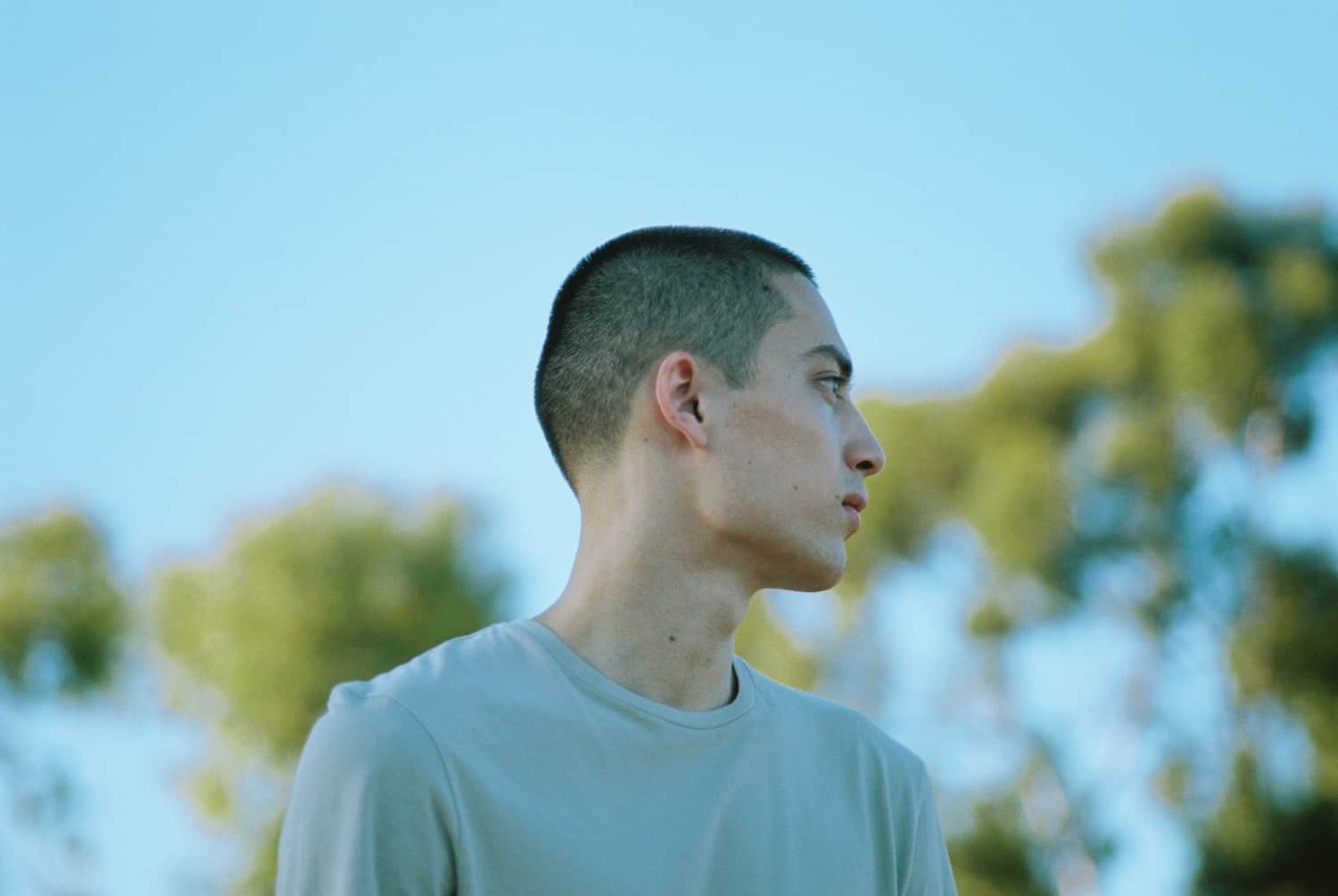
Arriving toward the middle of the album, the song “isohel” flutters with chirping birds, accented vocal echoes, twinkling mallets, and much more. It is the album’s most acoustic work, and perhaps EDEN’s most hopeful piece yet, sounding just like springtime. “Isohels are lines on a weather map that connect all the areas that receive equal sunlight,” EDEN explains. “Light and sunlight have been an odd obsession for me since I was a teenager. I’ve always felt like I was moving toward some unreachable horizon.”
And I miss the way (Talk it out)
The sun streamed through my window (Cut me off)
And I miss the way (Chalk it down)
You almost held the tide (To my head)
But still, it’s nice (Balancing my head)
Dreaming that you’re somewhere (Slow it down)
Feeling the same heat that I did (Rise and fall)
No fear no fall (Chalk it down) (I know, I know)
If invisible lines lead your way back to me (To my head)
Still, I got nothing, woah
A wash of tranquility and intimacy accompanies an outro spoken in French: The homonyms “bruyantes/brilliantes” repeat four times, “noisy/bright,” calmer with each delivery, eventually concluding with the phrase, “Sont toutes pareilles à la fin,” meaning, “they’re all the same in the end.” Over a stream of soft acoustic guitar work, EDEN delivers a ray of breathtaking light and hope.
no future may not always be as positive as “isohel,” but it carries that song’s passion and earnestness throughout. The album has no folcrum; there is no pivot point or easily-identifiable method to Jonathon Ng’s madness; rather, no future captures a 24-year-old still figuring things out, continuing to bloom as he channels all his fear and love into a wondrously entrancing soundtrack. Transmitting emotion from all angles, EDEN has created one of the most cinematic, human, and nuanced electronic masterpieces to this day – unintentionally revolutionizing the electro-pop space as a whole, and changing all who listen for the better.
Jack-of-all trades Jonathon Ng, singer, producer, and songwriter behind all things EDEN, spoke to Atwood Magazine about his new album’s processes, finding optimism at the core of panic, the EDEN identity, music, and inspiration.
Stream: ‘no future’ – EDEN
A CONVERSATION WITH EDEN
Atwood Magazine: What were the first ideas or concepts behind your sophomore return no future?
EDEN: The first ideas I guess probably date back to 2018 on the road. All free time on tour was spent making beats and sounds. One or two ideas from before hitting the road. Rushing was based on a bunch of modular stuff that I’ve made, hertz as well. The sound is completely a modular synthesizer going crazy; that was kind of the basis for it.
What was the significance, personal or otherwise, of sampling people talking in various languages? Was touring an influence in that at all?
EDEN: No, not really. I’ve always been a big fan of visual media – films, that kind of thing. There’s a Natalie Portman sample [on ‘in’] – it didn’t have to do with being physically anywhere. Having someone just speak, or a sample of the rain hitting the window, rustling of the wind, can really convey a sentiment or emotion or memory I have; it kind of elevates the music, in a way that the music in itself just can’t. It’s a blessing being able to do that, to produce myself. The samples are just a part of the music; I feel like if I were to just pick up a guitar, it wouldn’t be enough.
Are there any pieces of art particularly important to you as a creator that laid the foundation for EDEN?
EDEN: I made the decision to become EDEN in 2015, and I guess what really informed the project most were the films I was watching over and over again – Cloud Atlas, Public Enemies… This pointed me in a romantic direction – not in a personal relationship sense, but in terms of the romance of the ideas — falling into a sense of romance with the world through weird difficult periods of life, through bad situations however they occur, there’s an optimism there… It’s a feeling I’ve had for a long time, but I’ve forgotten about or lost. It was particularly strong in vertigo, but it’s definitely back, and it’s really good. That was the genesis, falling in love with movies. Movies will emote you and put you in a certain frame of mind. With EDEN, I’m translating that into my own life.
How do you differentiate between the identities of EDEN and Jonathon Ng?
EDEN: This is something I’ve been thinking about a lot recently. In terms of how something that kind of struck me, Donald Glover said, “One more Gambino thing then it’s over.” There’s a relief and freedom with that. Is EDEN this ever transforming thing around myself. Should it reflect however I feel, bend, and evolve as a person? Or does EDEN stay as the identity of EDEN, and should I change when I change? The person I was three years ago is a lot different to who I am now, so should EDEN change? Is EDEN then more EDEN than now?
Do you feel you have any responsibilities to that process? Does that process change as your artistry/craft does?
EDEN: I think the only thing I try and keep a quiet level head about is just being honest, and being yourself – which is a really easy thing to say and a really difficult thing to do. I have no responsibility to make a certain type of music or get radio play; I’ve never had a radio song, I don’t try to make anything. All I ever do is what I feel right now and it’s genuine.
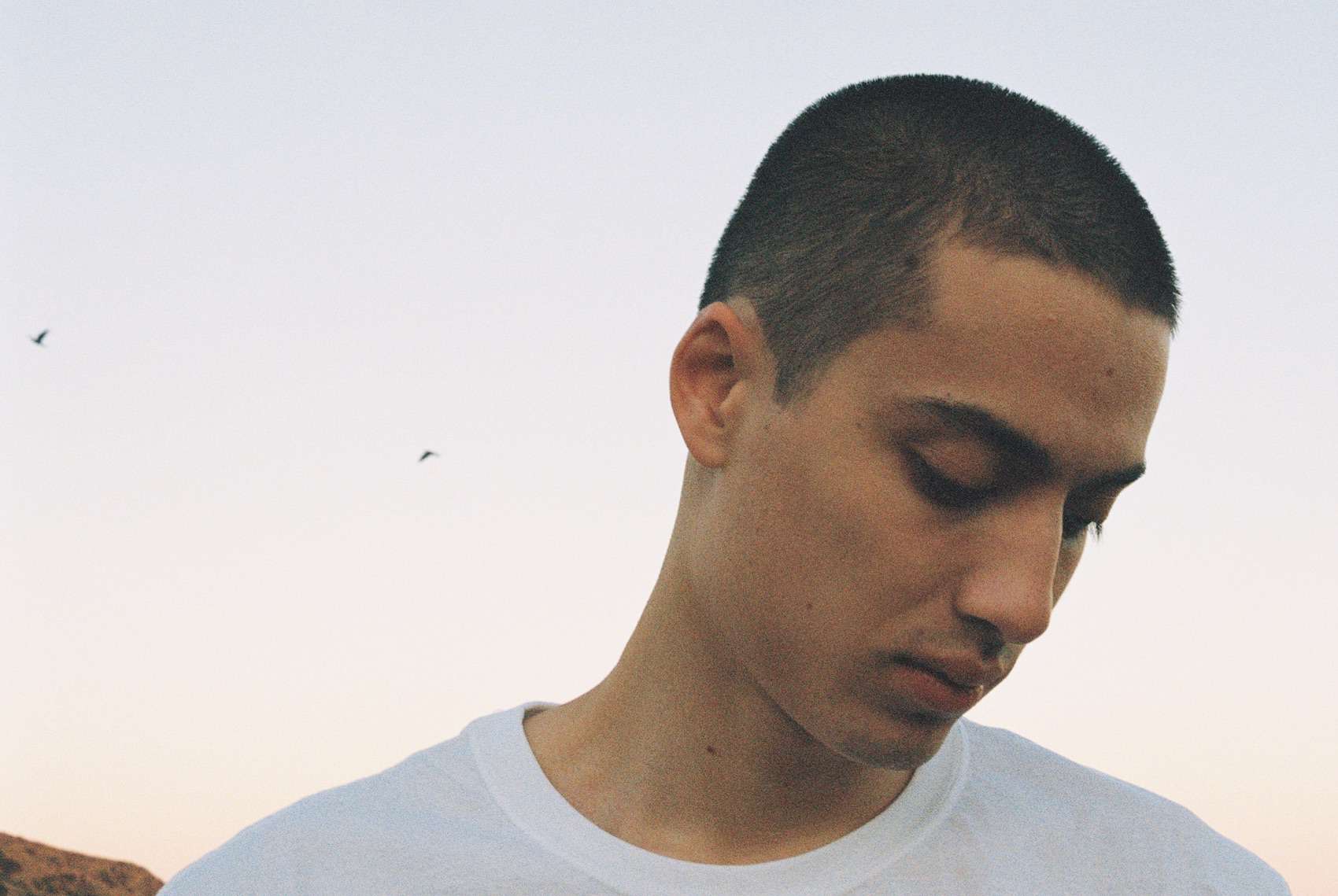
Is this album a follow-up to vertigo at all?
EDEN: Definitely. It still feels connected, I think. I was explaining this to a manager and a couple friends; [it’s a] path of my life between two points, the first point being “End Credits” and the second point being “no future.” It definitely isn’t a straight line, kind of something non-linear.
It’s been an up and down and whatever spaghetti mess, the last five or so years; it’s been fun. Each point, no matter how weird it might feel, to think I did that and that’s how I felt… Each point is who I am and what I am in that moment.
There’s a thread through them all.
EDEN: It’s been a wild ride, my formative years. This album feels like a platform, really kind of stabilizing the sense of this being great and being excited about the future. In the past, it was like, ‘great I’m done.’ I just wanna keep going and going now, and it’s a really nice feeling.
Your work is so deeply personal. You are the core of EDEN: Everything is mixed, produced, written by you, and every last note and nuance is quite literally yours. Is there any artist you would collaborate with?
EDEN: There are a lot of artists I really love. For this album, we were looking into working with people, but the way schedules line up and the way life ends up in general, well I’m gonna start my shit and if this works out, if they get off tour or even want to, that would be great. It got to the point where I made so much stuff for myself that it would be wrong to put other people in. At the start, that was the goal, but I felt like, “Ok: I need to finish this by myself.”
Maybe we’ll hear more voices on the next album Who are you listening to these days? Is there anyone you would recommend?
EDEN: A ton, a ton of Yung Lean. Ben Howard, Blood Orange, Foret. I’ve fallen back into a lot of electronic music recently, which I haven’t been following for a long time – club music in a European sense, that is.
— —
:: stream/purchase no future here ::
— — — —
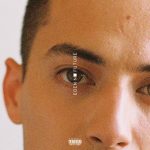
Connect to EDEN on
Facebook, Twitter, Instagram
Discover new music on Atwood Magazine
? © Drew Escriva
:: Stream EDEN ::


